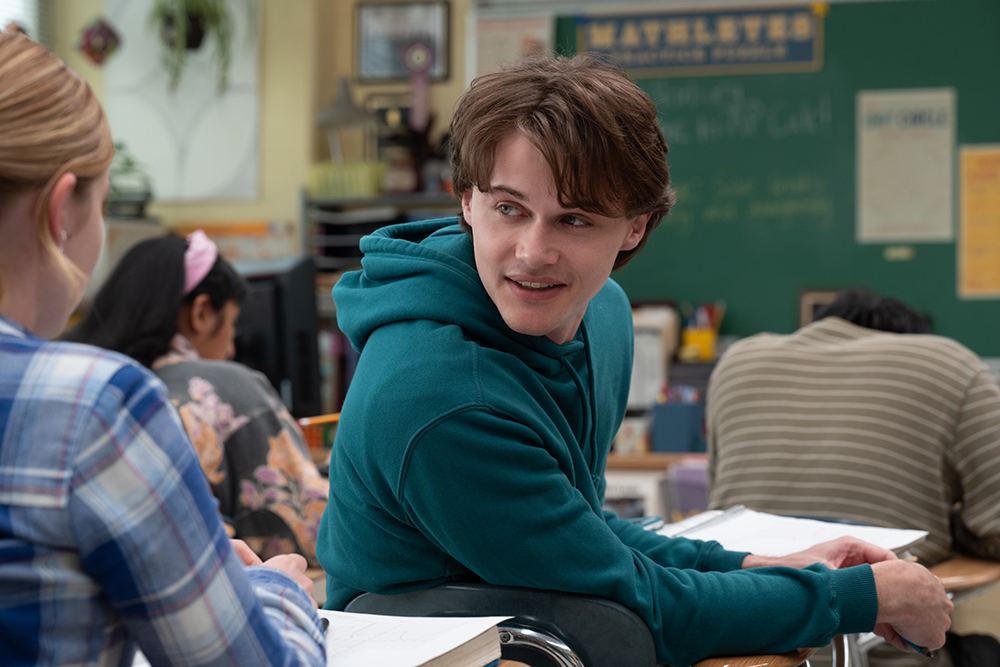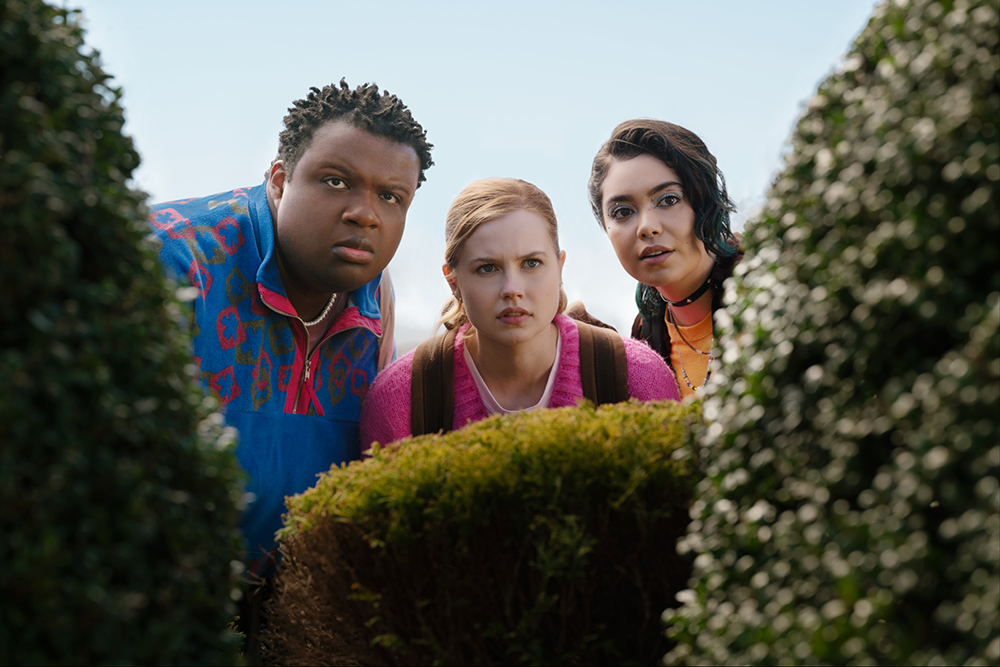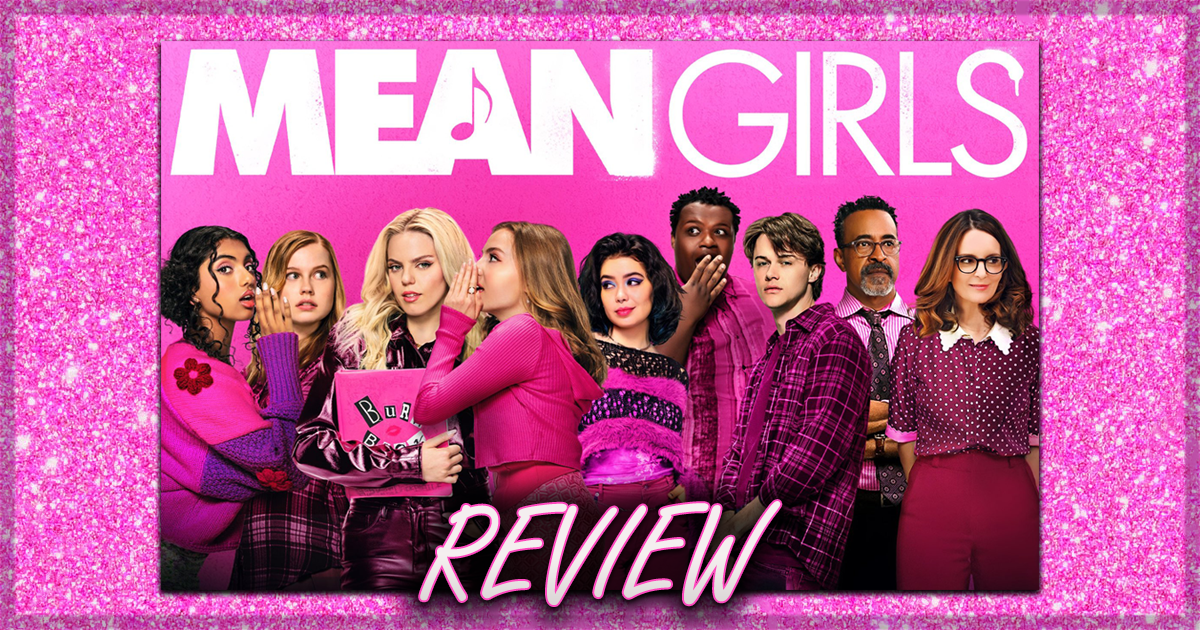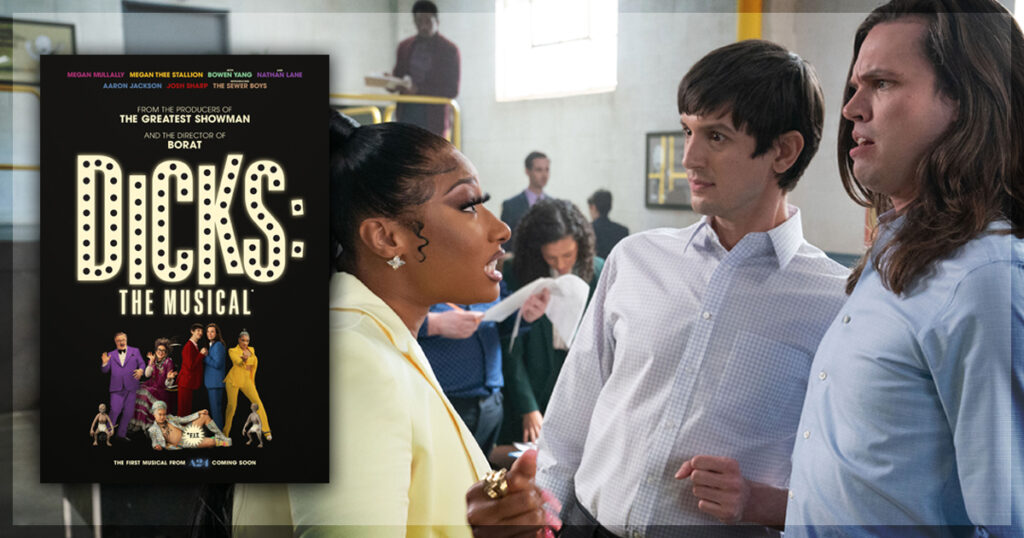Who would’ve thought a January-released musical remake of Mark Waters’ Mean Girls would actually be so fetch? Definitely not me, but here we are. Moreover, it’s a far better film than the 2004 original, with energy in front and behind the camera, making it a special piece of consumerist entertainment. There’s no denying the film is wholly reliant on the audience knowing – and loving – the 2004 original, with directors Samantha Jayne and Arturo Perez Jr. winking as much as possible at referencing the movie, even going so far as recreating scenes with original actors Tim Meadows and Tina Fey, with the latter having written the screenplay for this one and the original film. But Mean Girls is strangely compelling, through a potent mix of [not-so-old] nostalgia with a contemporary look and feel that ultimately works in its favor and won me over by the time it ended.
The 2024 remake follows the same story of Cady Heron (Angourie Rice) moving from Africa to the United States so she can have a normal life in High School as a teenager. But at North Shore High, nothing is normal. An Iron Fist runs the school’s vibe through the plastics, led by Regina George (Renée Rapp) and her friends Gretchen Wieners (Bebe Wood) and Karen Shetty (Avantika).
New at school, Regina welcomes Cady with open arms and tells her she can eat lunch with them for the week. She thinks it’s a bad idea, but her new friends Janis’ Im’ike (Auli’i Cravalho) and Damian Hubbard (Jaquel Spivey) see it as a golden opportunity to get as much dirt on the plastics as possible to end their rule of North Shore.

Mean Girls’ Musical Twist Elevates the Original
As described above, it remains faithful to Fey’s original text but with a musical twist. But that specific twist lifts Waters’ conventional, cookie-cutter coming-of-age tale into a cinematic odyssey. The film’s style perfectly represents the Odyssey: consistently playing with aspect ratios to convey Cady’s dreamlike state (2.39:1), which gets rapidly bumped into the real world (1.85:1). Usually, aspect ratio changes are confined to IMAX versions of films when it transitions from non-IMAX to IMAX, but Mean Girls breaks with that usual tradition by having its aspect ratio an integral part of its cinematic experience.
Some of the 2.39:1 numbers are incredibly evocative, including one set during a Halloween party, peering through Cady’s psyche as Regina is about to make a move to kiss Aaron Samuels (Christopher Briney) in front of her. Another incredible use of the aspect ratio occurs as Regina discovers that Cady has been playing tricks on her all along and decides to add herself to the “Burn Book” to frame Cady. These songs, “Somebody Gets Hurt” and “World Burn,” are the film’s best numbers, with cinematographer Bill Kirstein completely controlling the mood he conveys from scene to scene.
Consider the moment that occurs before the aspect ratio shifts to “World Burn“: Regina is on a treadmill, running like there’s no tomorrow. She’s in the darkest room of her bright and colorful house: Kirstein immediately sets the tone of the environment through dark greys and a blinding fluorescent tube covering her eyes and face. As she drastically learns that the Kälteen bars she’s been eating to lose weight are, in fact, used for people to gain weight, Kirstein smartly uses a light dolly for the audience to experience her psychological breaking point with her. CUT TO: 2.39:1 musical number. Waters couldn’t have dreamed of doing something as purely cinematic as this in 2004.

Renée Rapp and Auli’i Cravalho are Spectacular
And it’s not just the striking, multi-layered aesthetics that range from pastel pink to tempered red to represent each character shift and the fun and catchy musical numbers that are scrupulously choreographed and paced that make this remake better than the original. The performances are also far better than the 2004 film.
Now now, before you throw me any tomatoes, Angourie Rice’s Cady Heron does not come close to the perfectly calibrated performance Lindsay Lohan gave in the 2004 original. The film’s best part was Lohan, as was Rachel McAdams’ Regina George, and their chemistry fired off all cylinders. That’s why it’s iconic. Had someone else played Heron in the original, I doubt a horrendous direct-to-video 2011 sequel and stage musical turned into a 2024 feature film would’ve ever been made.
But everyone else, including Rapp, is a high mark above their original counterparts. Rapp’s iteration of Regina is, of course, highly inspired by McAdams’ turn in the film – but she lifts the shell of the character built by McAdams through highly skillful musical numbers that make us feel more about the character than in the first film.
Damian and Janis feel like human characters with an arc
The same applies to Janis (Cravalho continues to impress in the musical department) and Damian: they feel like human characters with a complete arc instead of one-note attributes. What do audiences remember from the original Damian in the 2004 film? That he’s too gay to function. They will remember more from him this time, with Spivey breathing new life and personality into the character in a more memorable fashion than its first iteration through Daniel Franzese.

The only actors who phone it in are, strangely, the ones who reprise their roles from the 2004 film. You would think Meadows and Fey would be more than excited about coming back for another shot at Mean Girls, but they only go through the same motions as they did in the original, but with less excitement and more lethargy. Another original star also appears though I’ll let you discover who that is and why it’s important that they were in this movie version. The reference to the original was perhaps egregious, but it didn’t feel as on-the-nose as in other remakes.
Final thoughts on the new Mean Girls movie
Of course, one who watches this remake must understand that it follows through the original’s story without an attempt to reinvent it as a way to appease its rabid fanbase, but the musical numbers help elevate it to such a level that it doesn’t matter how conventional the story is. There’s something so pure about seeing a near-perfect marriage of striking images that deftly set the pace and energy the musical numbers need to feel alive and cinematic. Mean Girls (2024) achieves this and more, surpassing the original by a long shot and already establishing itself as the best movie musical of the year. Will there be a movie beating it later down the line? Perhaps, but I’m not hoping one such film exists.
Mean Girls is now in theaters. Visit the official website to learn more about it, including how to buy tickets for the latest showtimes.
Have you watched Mean Girls yet? What did you think? Are you feeling particularly Plastic? Leave a comment below or message us on X @MoviesWeTexted to join the conversation.


